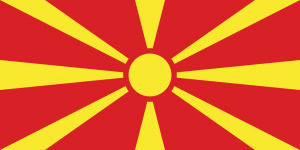Language/Macedonian/Grammar/Plurals
Hi Macedonian learners! 😊
In this lesson, we will tackle one of the essential topics in Macedonian language learning - Plurals. As you know, understanding the plural forms of nouns is crucial to speaking and writing Macedonian accurately. We will discuss the rules for creating plurals and give examples to illustrate each point. If you want to improve further on Macedonian find native speakers and ask them any questions! Let's get started! 🚀
Formation of Plurals in Macedonian[edit | edit source]
In Macedonian, like any language, there are rules for forming plurals. The general rule is to add the suffix ‘-i’ to the stem, although there are exceptions to this rule. Let's examine each of these rules in detail.
Singular Nouns ending with a vowel[edit | edit source]
If a singular noun ends with a vowel, add the suffix ‘-ја’ to form the plural. Examples are shown below:
| Macedonian | Pronunciation | English |
|---|---|---|
| стол (stol) | stɔl | table |
| столја (stolja) | stɔʎa | tables |
| кафе (kafe) | kafɛ | coffee |
| кафеја (kafeja) | kafɛja | cups of coffee |
Singular Nouns ending with a consonant[edit | edit source]
If a singular noun ends with a consonant, add the suffix ‘-и’ to form the plural. Examples are shown below:
| Macedonian | Pronunciation | English |
|---|---|---|
| книга (kniga) | kniga | book |
| книги (knigi) | knigi | books |
| машина (mašina) | maʃina | car |
| машини (mašini) | maʃini | cars |
Singular Nouns ending with ‘-o’ and ‘-e’[edit | edit source]
If a singular noun ends with ‘-о’ or ‘-е’, add the suffix ‘-а’ to form the plural. Examples are shown below:
| Macedonian | Pronunciation | English |
|---|---|---|
| кино (kino) | kino | cinema |
| кина (kina) | kina | cinemas |
| око (oko) | oko | eye |
| очи (oči) | ɔtʃi | eyes |
Singular Nouns ending with ‘-ње’[edit | edit source]
If a singular noun ends with ‘-ње’, remove the ‘-ње’ ending and add the suffix ‘-ња’ to form the plural. Examples are shown below:
| Macedonian | Pronunciation | English |
|---|---|---|
| куче (kuče) | kutʃe | dog |
| кучиња (kuchiњa) | kutʃiɲa | dogs |
| душе (duše) | duʃe | soul |
| душиња (dušiњa) | duʃiɲa | souls |
Irregular Nouns[edit | edit source]
Some nouns in Macedonian are irregular and do not follow the above rules. Examples are shown below:
| Macedonian | Pronunciation | English |
|---|---|---|
| човек (čovek) | tʃɔvɛk | human |
| леб (leb) | lɛb | bread |
| ден (den) | dɛn | day |
| деца (deca) | dɛtsa | children |
Dialogue[edit | edit source]
- Person 1: Имаш ли коњи? (Do you have horses?)
- Person 2: Да, имам три. (Yes, I have three.)
- Person 1: Каде се наоѓаат книгите? (Where are the books?)
- Person 2: Во библиотеката се наоѓаат. (The books are in the library.)
Conclusion[edit | edit source]
Excellent! You’ve learned the essentials of the Macedonian plural formation. To improve your Macedonian language skills, you can also use the Polyglot Club website. Don't forget to practice your speaking and writing skills regularly. With consistent practice, you can master Macedonian plural formation in no time. 🤩
➡ If you have any questions, please ask them in the comments section below.
➡ Feel free to edit this wiki page if you think it can be improved. 😎
Sources[edit | edit source]
Having concluded this lesson, consider checking out these related pages: How to Use "Be", Useful Sentenses, Present Tense & Personal Pronouns.
Other Lessons[edit | edit source]
- Conditional Mood
- Articles
- Nouns
- Pronouns
- Negation
- Future Tense
- Questions
- Adjectives
- Give your Opinion

